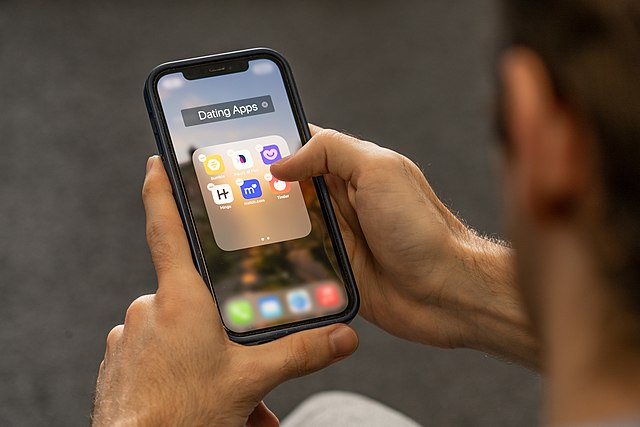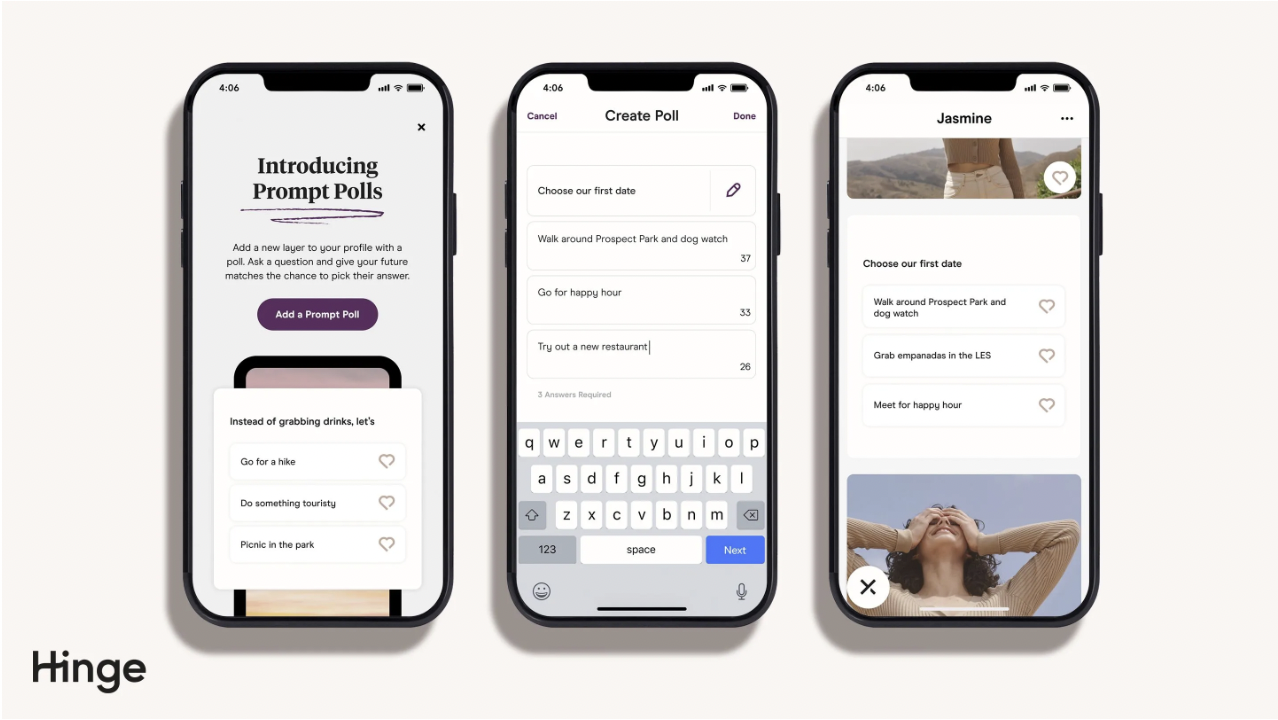Swiping Into the Void

Last month, Hinge rolled out yet another round of features designed to streamline the illusion of choice. “Video Prompts” and “Video Polls” represent further attempts from the company to personalize and maximize the in-app experience. Swipers can more closely curate their potential matches by allowing users to respond to video-specific prompts, as well as send out polls with three ‘unique’ answers potential matches can select from.
These functionalities are supposed to help us be more selective. Kelly, a graduate student at AUP, comments that the features make her feel more informed about the people she swipes right on. She adds, “I tend to swipe very rarely and I always feel more in control of the process”.
The Hinge promise is that you’ll be able to find the perfect partner, giving you the tools to curate, whittle down, and visualize that choice. Such is guaranteed by their slogan: "the dating app designed to be deleted".
The ‘ease’ of maximizing our choices might explain why we’re downloading dating apps in droves, even when the romantic payoff is unconvincing. Dwyette, another AUP graduate, says she’s ‘unsure if the apps make [her] feel like it's possible to find a perfect long-term match’. She’s not alone in that feeling; Psychology Today reports that while 20 percent of people aged 25-40 are on dating apps, a mere 5 percent of users have found lasting relationships. That’s because the dating app game is one of revenue, not true love.
Image Credit: Hinge WebsiteHinge wants your attention, not your happiness. The app might look like it's engineering you towards ‘the one’, but the design couldn’t be more antithetical. In-app adverts, paywalls, and subscription models that display your dating profile to more users and reward you with unlimited swipes are some of the ways that app companies capitalize off your screen-time. The neurological impacts of encouraged swiping are even more worrying.
The ‘gamification models’ of major dating apps are designed to keep you on the platform for as long as possible. One research paper found that ‘the core gameplay of swiping profile images sets out an intense chain of potential microscale desires and hopes’. Because swiping ‘like’ on someone always leads to a potential match, the positive feedback loop keeps the user on the app for as long as they believe in that promise. It’s not hopeless romanticism that keeps us locked to our screens; it’s science.
Just like believing your odds of winning the jackpot might increase the longer you gamble, Hinge and Tinder work by rewarding you with an intermittent hit of dopamine when you make a match. According to Dr. David Greenfield, a clinical professor of Psychiatry, the anticipation of that potential reward releases a flood of dopamine in our brains, coupled with increased levels of cortisol, the stress hormone, caused by incessant scrolling. Combine that with Tinder's recently deactivated Elo algorithm, which presented first-time users of the app with the most swiped and thus ‘desirable’ profiles to encourage them to keep swiping, and you'll see that dating apps are literally designed to send our brains into overdrive.
The ‘plenty more fish in the sea’ trope persists in real-life romance, but Robert Payne, Department Chair of Communication, Media, and Culture at AUP, comments that “the online interface makes the appearance of abundance much more present and approachable, without having to do very much work.” Swiping right is simply “an embodied reflex that allows more abundance to appear in front of [your] face.”
Image Credit: Unsplash/Rene RanischNo revenue-based app is designed to be deleted, so we must find ethical solutions to the problems created by the swipe-based model. With no sign of their usage declining, it might be up to us as users to mindfully moderate how and why we interact with them. “I wonder if there’s a way in which the individual themselves finds an ethical balance between using Hinge for certain purposes and then going over to Tinder for something more hook-up based”, Payne suggests.
Emerging apps are increasingly attempting to address these concerns by blending offline with online and limiting usage. Thursday, whose company taglines include ‘#OnlyOneDay’ and ‘F*ck Dating Apps 6 Days a Week’, allows users to chat over a strict 24-hour period on Thursdays each week. Daters are encouraged to only use the app if they’re available to physically date that day, and are directed to Thursday-organized in-person events at venues across London and New York, where the app operates.
“The cellphone experience; this constant toggling between apps [has created] a generation of people who have become absolutely adept” at multitasking with virtual platforms, says Payne. “Apps and digital media have become so integrated into our embodied habits, something like a swipe action is really, whether it’s left-right or up-down, a haptic movement [that is] absolutely a reflex at this point” he continues.
If the dating app is here to stay, we must unlearn some of these habits. A hybrid of the lived, offline experience of dating with the functions of a virtual interface seems to be the only conceivable future for healthier online interactions. For now, let’s scrap the swipe, at least for a few days a week.









